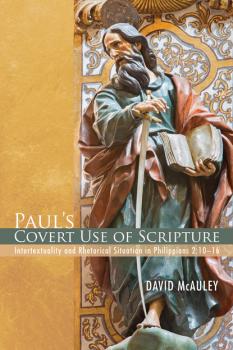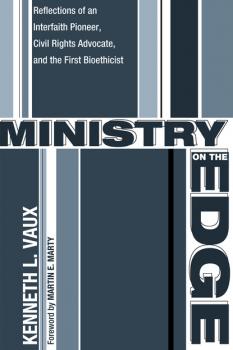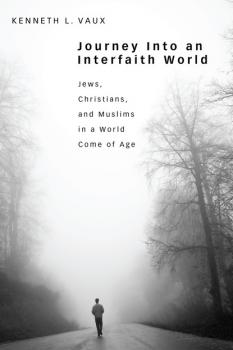ТОП просматриваемых книг сайта:
Религия: прочее
Различные книги в жанре Религия: прочее, доступные для чтения и скачиванияАннотация
The Dead Sea Scrolls have opened up for modern readers the ancient world of Jewish interpretation of the Bible during the Second Temple period. Among these scrolls are several manuscripts dating to the first century BC, the oldest surviving texts dealing with interpretation of the Genesis Flood. A literary analysis of the four primary Qumran Flood texts (1QapGen, 4Q252, 4Q370, and 4Q422) reveals how ancient Jews interpreted and employed the Genesis Flood narrative. These texts contain commentary, paraphrase, and admonition, among other things, addressing issues such as the cause, chronology, and purpose of the Flood. In addition, these fragmentary treasures reveal such ancient understandings of the Flood as a reversal and renewal of creation, a restoration of Eden and anticipation of the Promised Land, and an archetype of eschatological judgment.
Аннотация
Jesus made claims about redemptive community throughout his ministry when he called people to extravagant grace. Even in the midst of the oppression of his day, Jesus preached and taught that redemptive community was possible if his followers would simply stop hoarding, hiding, and excluding. What a prophetic word for today in the midst of modern day oppression and fears of scarcity! In this edited volume, in honor of religious education scholars Jack Seymour and Margaret Ann Crain, eight of their PhD advisees–each scholars in their own right–join Seymour and Crain to lay out their vision of redemptive community. Rooted in their own scholarship, each contributor proposes ways in which Jesus' vision of redemptive community can become reality in churches and congregations, and in our larger world. In addition to essays by Jack Seymour and Margaret Ann Crain, scholars contributing to this volume include Dori Grinenko Baker, Reginald Blount, Evelyn L. Parker, Mai-Anh Le Tran, Leah Gunning Francis, Carmichael Crutchfield, Debora B.A. Junker, and Denise Janssen. The foreword by Mary Elizabeth Moore and afterword by Seymour and Crain set the volume in the larger context of the church and academy.
Аннотация
This book explores the biblical interpretation of the Ethiopian Orthodox Tewahido Church (EOTC). In doing so, it illuminates the interpretation of the Bible in a particular historical and cultural context and presents a compelling example of the contextual nature of biblical interpretation. Those who visit Ethiopia experience its unique spirituality, which is significantly informed by the presence of the EOTC. The EOTC has existed from earliest years of the Christian church. It has also developed and maintained its own ecclesiastic tradition in the Ethiopian context and has its own distinctive way of reading the Bible. It is noteworthy, particularly in the African context, that it has its own commentaries on the Scriptures, which continue to serve as a vital tradition in the EOTC's interpretation of the Bible. This is evident in the contemporary hermeneutics and sermons of EOTC preachers. In its comprehensive consideration of the EOTC's past and present, this book examines the interplay between tradition and context in biblical interpretation and contributes to current biblical scholarship.
Аннотация
Biblical narrative learning is a non-critical educational approach for Christian communities with diverse learning backgrounds, involving three sets of movement: inquire and invent, interpret and imagine-inspire, and imitate and impart. It is grounded in humankind's universal capacity to teach and learn through stories and built on practices in narrative learning, along with biblical narratives.
The Gospel of John provides a model for this interpretive process that continues the teaching of living in a loving relationship with God and one another. John uses many literary devices to enhance an affective and reflective learning. The literary devices create the familiar-strange effect. John's narrative fosters remembrance of the Story and guides the learner to adequate faith in God. It inculcates adequate faith to wait in suspense, while the Jesus Story and our stories, when they are remembered, create new understanding and transform the life experiences of the person.
The Gospel of John provides a model for this interpretive process that continues the teaching of living in a loving relationship with God and one another. John uses many literary devices to enhance an affective and reflective learning. The literary devices create the familiar-strange effect. John's narrative fosters remembrance of the Story and guides the learner to adequate faith in God. It inculcates adequate faith to wait in suspense, while the Jesus Story and our stories, when they are remembered, create new understanding and transform the life experiences of the person.
Аннотация
Read the Old Testament for the first time. Again. Experience it as an actual story for the first time. This unique book takes the reader inside the biblical narrative for a fresh encounter with God's Word. Often we read the Old Testament looking for how each event anticipates the Christ, which is a bit like reading a detective novel knowing «who done it» all along. Here, each succeeding episode is allowed to speak on its own terms only, building upon what has already happened just like any other story. Along the way it will be demonstrated how each part of the biblical narrative embodies the three covenantal promises that God made to Abraham: Land, Many Descendants, and a Blessing to All Nations. In so doing, the inherent narrative framework of the «old, old, story» is more fully exposed and the reader is rewarded with a new sense of its profound unity and divine inspiration.
Аннотация
This book explores why and how Paul uses Scripture (Old Testament) in Phil 2:10-16. It tests the suggestion that a cluster of tacit references to specific books of Scripture is integral or foundational to Paul's epistolary argument. If the problem in Philippi is the disinclination to accept suffering and death as intrinsic to gospel citizenship, then the muted allusions lead to a single, central theme: «God's approval of suffering and death for the sake of Christ.» McAuley argues this theme is the crucial intertext that unifies and gives significance to the whole letter. Previous scholarly efforts to discover congruence between the contexts of Philippians and the Old Testament have rested on a heuristic approach focused on surface-level themes and «facticities» recorded in Paul's text, leading to mixed results. In this investigation McAuley sets forth a new theoretical and exegetical framework that draws on insights from theories of intertextuality, allusion, and rhetorical situation to offer a fresh interpretation of Philippians.
Аннотация
The preaching of God's Word happens tens of thousands of times each week across the world. As these sermons are given, when the preacher is faithful to the text of the Scripture, it is as if God is speaking to the people of that given congregation. The question is, are people listening? Listening to preaching is more than showing up, sitting still, or even nodding one's head. It is taking that which is preached and applying it to life. Helping Johnny Listen is a book designed to help the average person who sits in the average church on the average Sunday take full advantage of the sermons they hear so that they are able to live what they hear.
Аннотация
Ministry on the Edge tells the story of Dr. Kenneth Vaux's long-standing career as theologian and minister–the first bio-ethicist, a civil rights advocate, and interfaith pioneer. Through a collection of essays, articles, and sermons, Vaux traces his prophetic assessment of important ethical issues from the perspective of theology and religion. He offers readers a deeper appreciation of the ethical implications of human and civil rights; medical and healthcare issues (such as abortion, stem-cell research, transplantation, death and dying); public policy; science and technology; war and interfaith conflict. By modeling a way of thinking through the questions that matter most, he helps readers find their own theological lens for wrestling with important moral and ethical concerns. Vaux's reflections are universal, exploring theology and ministry «on the edge»–the boundary between Godly and worldly, sacred and secular, evangelical and ethical–what Bonhoeffer called the boundaries of good and evil, truth and falsehood, hope and despair.
Аннотация
In this comprehensive volume, Dr. Kenneth L. Vaux explores the shared theological ground of Judaism, Christianity, and Islam-the common God, the common good, the common word, and the common work. Based on the premise that the three Abrahamic faiths are given by God for some purpose in God's universal history, Journey Into An Interfaith World traces the ways in which these faith movements flow together from and into each other in synergistic ways. At the same time, the book reveals how each fraternal faith has missed the mark in disassociating from its sibling traditions. Vaux's «journey» examines the spiritual genealogy shared by the three cognate faiths–from whom we come–as well as the mutual spiritual ontology–to whom we belong. «All three traditions echo the same refrain: 'Do we not belong to One God?'»
Аннотация
A question has challenged the human conscience for two thousand years: «How are we to explain the presence of Jesus Christ in this world?» Or who, indeed, was Jesus Christ? A man like the rest of men? Or was he a divine Person? Why was it that well-practiced soldiers who failed to fulfill their commission to arrest him said: «Never man spoke like this man?» The early church confirmed the apostles' declaration that Jesus Christ was the eternal Son of God and that he came into the world to fulfill a messianic-redemptive assignment. «Christ Jesus,» the apostle to the Gentiles explained, «came into the world to save sinners.» In The Cross: Its Meaning and Message in a Postmodern World, Douglas Vickers sees the cross as the watershed of history. The divine objectives that the cross addressed bear vitally on the human condition, vitiated as that is by the entailment of sin. In an age in which postmodernist claims have rejected absolute criteria of truth and validity, the Christ of the cross provides the only refuge for those burdened by the search for meaning. The Cross explores the way of reconciliation between God and man. It affirms the apostolic claim that «In [Christ] are hid all the treasures of wisdom and knowledge.»










